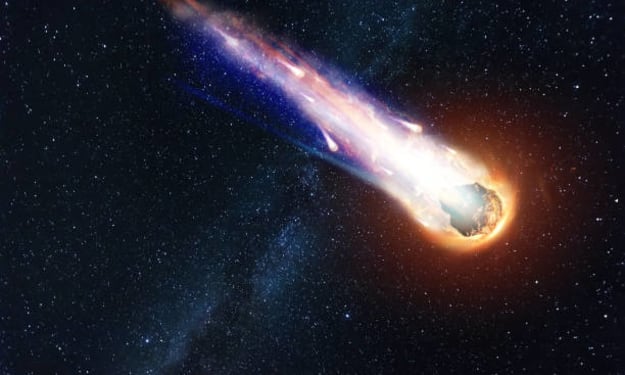A Cry from the Margins
The Unseen Victims of Climate Change
In the small coastal village of Marisville, nestled between the azure waters of the Atlantic Ocean and the lush greenery of the mangrove forests, lived a woman named Maria. She was known to everyone as Mama Maria, the heart and soul of the community. Her weathered face told the story of a life well-lived, but it also bore the scars of countless storms that had battered their village over the years.
Marisville was a place of breathtaking beauty, but it was also a place of vulnerability. The villagers had always lived in harmony with nature, relying on the bountiful fish from the sea and the fruits from the mangroves for their survival. But as the years went by, Mama Maria and her fellow villagers noticed a shift in their beloved environment. The ocean was no longer as calm, and the mangroves were receding, leaving their village exposed to the elements.
The changing climate had brought devastation to Marisville. The once-fertile fishing grounds were now unpredictable, with fish populations dwindling and unpredictable weather patterns making it difficult to plan for a catch. The rising sea levels had already claimed several homes, and the villagers had to constantly rebuild, with each passing storm taking away a piece of their history and their future.
Mama Maria had seen it all, and it broke her heart. She had watched as the younger generation grew up in fear of the very waters that had sustained their ancestors for centuries. The injustice of it all weighed heavily on her heart. She knew that they were not responsible for the carbon emissions and pollution that were driving climate change, yet they were paying the price.
One hot and humid afternoon, as the villagers gathered in the shade of the remaining mangrove trees, Mama Maria decided it was time to speak up. She had a fire in her eyes and a passion in her heart that couldn't be ignored any longer.
"My dear friends and family," she began, her voice trembling with emotion, "we have lived here for generations, and we have always taken care of this land and sea. But now, we are facing a crisis that is not of our making. Climate change is taking everything from us - our homes, our livelihoods, and even our sense of security."
Tears welled up in Mama Maria's eyes as she continued, "It's not fair that those who have contributed the least to this problem are suffering the most. Our children deserve better. We deserve better."
The villagers listened intently, feeling the weight of Mama Maria's words. They had never dared to voice their frustrations and fears so openly, but Mama Maria's courage inspired them to speak up as well.
One by one, they shared their stories. Pedro, a young fisherman, talked about the increasing difficulty of finding fish and the uncertainty of each fishing trip. Isabella, a mother of two, tearfully described how her family had lost their home to a recent storm and were now living in a makeshift shelter. Luis, an elder of the village, spoke about the mangroves disappearing before their eyes, leaving them exposed to the ravages of the sea.
As the stories flowed, the villagers realized that they were not alone in their suffering. Climate change had created a shared pain that bound them together, transcending age, gender, and background. They also realized that they could no longer remain silent.
With renewed determination, they decided to take action. Mama Maria and her fellow villagers began attending community meetings and advocating for climate resilience measures. They connected with organizations working on climate justice and started telling their story to the wider world through social media and local news outlets.
Their efforts bore fruit. The outside world started to take notice of Marisville's plight. Activists, scientists, and journalists came to the village to witness firsthand the impact of climate change on this vulnerable community. They captured the resilience and spirit of Marisville in their stories and photographs, shining a spotlight on the injustice faced by marginalized communities like theirs.
Slowly but surely, the support started pouring in. Donations arrived to help rebuild homes and strengthen their defenses against the encroaching sea. Experts provided guidance on sustainable fishing practices, and initiatives were launched to replant the mangroves that had been lost. Marisville became a symbol of hope and resilience in the face of climate change.
As the years passed, Marisville underwent a transformation. The village that had once felt forgotten and abandoned was now a thriving community, with a newfound sense of empowerment and solidarity. Mama Maria had seen her village change, and she knew that they still had a long journey ahead, but they were no longer victims of climate change. They were warriors, fighting for their future and the future of vulnerable communities everywhere.
But the battle was far from over. Climate change continued to rage, and Mama Maria knew that they had to keep raising their voices, keep telling their story, and keep demanding justice. She had seen firsthand how empathy and unity could move mountains, and she was determined to ensure that no one else would suffer the way Marisville had.
In the end, Mama Maria's emotional plea had ignited a fire in the hearts of her fellow villagers and inspired a movement that transcended their small coastal community. Their story was a testament to the power of empathy and the strength of vulnerable communities when they come together to fight for justice in the face of an unjust world.
About the Creator
Enjoyed the story? Support the Creator.
Subscribe for free to receive all their stories in your feed. You could also pledge your support or give them a one-off tip, letting them know you appreciate their work.






Comments (1)
good